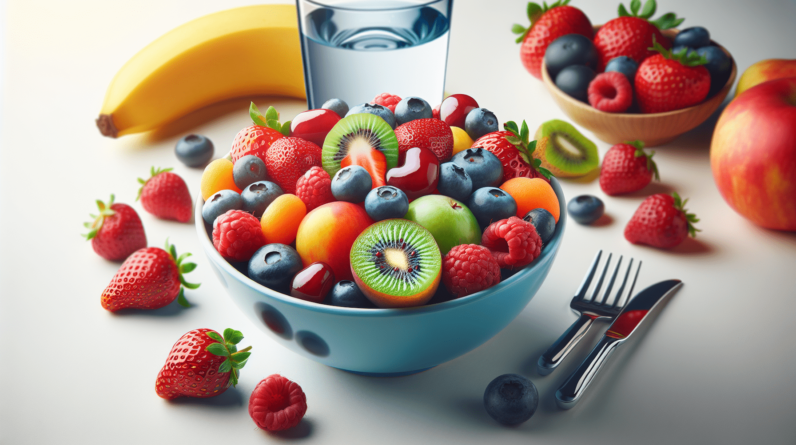
Can a Healthy Diet Support Kidney Function?
Introduction to Kidney Health
Maintaining kidney health is vital for overall well-being. Kidneys are responsible for filtering waste and excess fluids from the blood, regulating blood pressure, balancing electrolytes, and producing hormones essential for red blood cell production. A healthy diet plays a crucial role in supporting kidney function and preventing kidney disease.
Why is Nutrition Important for Kidney Health?
Proper nutrition is essential for maintaining kidney health as certain foods can impact the kidneys’ ability to function effectively. A balanced diet that is low in sodium, phosphorus, and potassium can help reduce the risk of kidney damage and improve overall kidney function.
Key Nutrients for Healthy Kidneys
Certain nutrients play a vital role in supporting kidney health. Including these key nutrients in your diet can help promote optimal kidney function and prevent kidney disease.
Protein
Protein is essential for the body’s growth, repair, and maintenance. However, individuals with kidney disease may need to limit their protein intake as excessive protein can put extra strain on the kidneys. High-quality sources of protein such as lean meats, fish, eggs, and dairy products are recommended for individuals with healthy kidneys.
Fiber
Fiber helps support digestion, regulate blood sugar levels, and reduce cholesterol levels. Including fiber-rich foods such as fruits, vegetables, whole grains, and legumes in your diet can help promote kidney health by reducing the risk of certain kidney-related conditions such as chronic kidney disease.
Antioxidants
Antioxidants help protect the body from oxidative stress and inflammation, which can contribute to kidney damage. Including antioxidant-rich foods such as berries, nuts, seeds, and colorful fruits and vegetables in your diet can help support kidney health and reduce the risk of kidney disease.
Foods to Limit or Avoid
Some foods can be harmful to kidney health and should be limited or avoided to prevent kidney damage. Understanding which foods to restrict can help protect your kidneys and promote optimal kidney function.
Sodium
Excessive sodium intake can lead to high blood pressure and fluid retention, increasing the risk of kidney damage. Limiting processed foods, canned goods, and added salt in your diet can help reduce sodium intake and support kidney health.
Phosphorus
High levels of phosphorus can be harmful to individuals with kidney disease as the kidneys may struggle to regulate phosphorus levels in the blood. Limiting phosphorus-rich foods such as processed meats, dairy products, and carbonated beverages can help prevent phosphorus buildup in the body.
Potassium
Individuals with kidney disease may need to limit their potassium intake as the kidneys may have difficulty regulating potassium levels in the blood. Foods high in potassium such as bananas, potatoes, tomatoes, and oranges should be consumed in moderation to prevent potassium imbalances.
Hydration and Kidney Health
Proper hydration is essential for maintaining kidney health as water helps flush out toxins and waste products from the body. Staying hydrated by drinking an adequate amount of water throughout the day can help support kidney function and prevent kidney stones and urinary tract infections.
How Much Water Should We Drink?
The recommended daily water intake varies depending on individual factors such as age, weight, activity level, and climate. In general, aiming to drink at least 8-10 cups of water per day can help promote optimal kidney function and overall health.
Meal Planning for Kidney Health
Planning meals that are kidney-friendly can help support optimal kidney function and prevent kidney disease. Including a variety of nutrient-dense foods while limiting certain nutrients can help promote kidney health and overall well-being.
Sample Meal Plan
| Meal | Food Choices |
|---|---|
| Breakfast | Oatmeal with berries and nuts |
| Lunch | Grilled chicken salad |
| Snack | Carrot sticks with hummus |
| Dinner | Baked salmon with quinoa |
| Snack | Greek yogurt with honey |
Tips for Healthy Eating
- Choose fresh fruits and vegetables over processed foods
- Opt for lean proteins such as poultry, fish, and tofu
- Limit sodium, phosphorus, and potassium-rich foods
- Drink plenty of water throughout the day
- Avoid sugary beverages and alcoholic drinks
Consulting a Healthcare Professional
It is important to consult with a healthcare professional or a registered dietitian before making any significant changes to your diet, especially if you have existing kidney conditions or are at a higher risk of kidney disease. A healthcare provider can provide personalized recommendations based on your individual health needs and help you develop a diet plan that supports kidney health.
Conclusion
Maintaining a healthy diet that is rich in key nutrients and low in harmful substances is essential for supporting kidney health and preventing kidney disease. By making informed food choices and following a kidney-friendly meal plan, you can promote optimal kidney function and overall well-being. Remember to consult with a healthcare professional for personalized guidance on nutrition for healthy kidneys.






